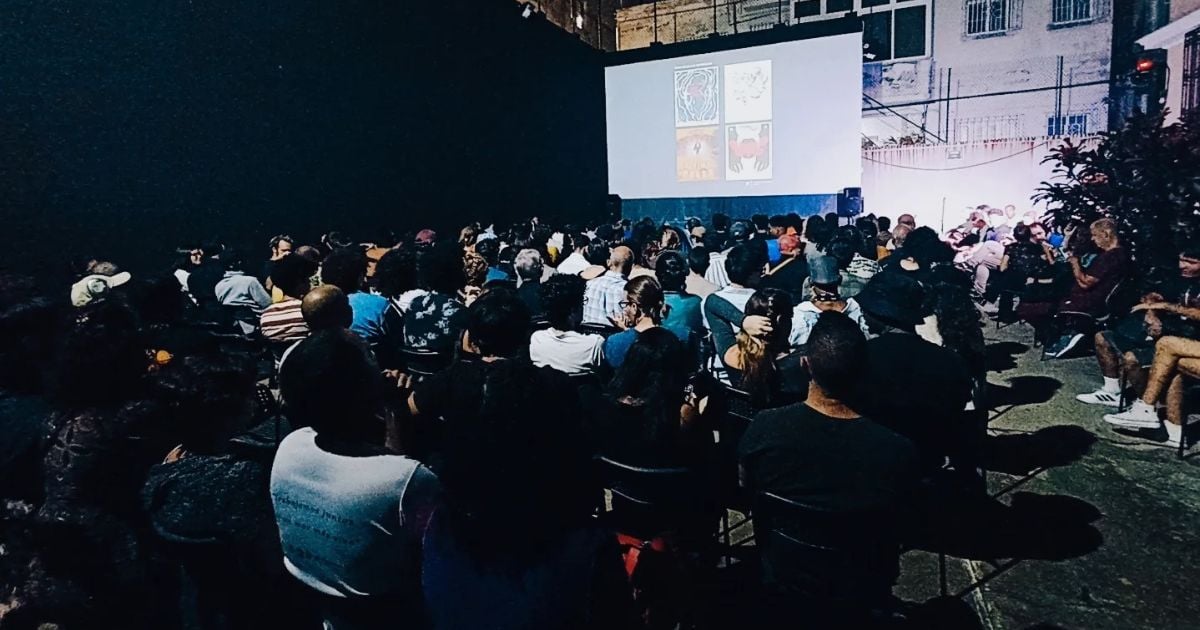
Related videos:
Orlando Mora Cabrera, director of the film "Killing a Man," announced on social media that the film, after being banned at the most recent edition of the International New Latin American Cinema Festival in Havana, managed to evade censorship and was screened in several alternative venues in Cuba.
In a Facebook post made this Saturday, the director expressed his gratitude to those who made the screenings possible and emphasized the interest of the Cuban audience in the film.
"'Killing a Man' was showcased for the Cuban public in two alternative venues this week. I am extremely grateful to all the people and institutions that offered us their support and closeness," he wrote.
The film was presented by the Ludwig Foundation of Cuba in collaboration with the International School of Film and TV in San Antonio de los Baños, and according to Mora, attendance exceeded expectations: “The audience surpassed the venue's capacity, and three screenings were necessary,” he explained.
Additionally, the Norwegian Embassy in Cuba hosted the film in its space known as 'Cinema Under the Stars,' where the high demand once again highlighted the attendees' interest: "It was also overwhelmed by the number of people," noted the director.
Despite the joy of having shared her work with the Cuban audience, Mora reflected on the challenges filmmakers face on the island.
"I appreciate that, despite everything, the film was able to be shared. Others have not been as fortunate," he lamented, referring to the many Cuban films that have been censored.
The director also expressed his commitment to a cinema that challenges the social and political realities of the country: “In the current circumstances, making a film that questions the contradictions of our social and political reality, with ethical and aesthetic demands, is necessarily a cinema of resistance.”
He concluded his message with a longing that goes beyond his work: “My thoughts right now are with all the censored Cuban films. My hope: that all Cuban cinema is seen in Cuba.”
The screening of "Matar a un Hombre" in alternative venues represents not only a victory for independent Cuban cinema but also a reminder of the challenges faced by creators in expressing their voices within a restrictive context.
The persecution by the Cuban regime against the team behind the film "Matar a un Hombre" persisted even after the film was censored at Cuba's main film festival.
His director was detained on December 21 by three agents from the Ministry of Interior (MININT), who allegedly took him to the police station at Zapata and C in El Vedado.
The Assembly of Cuban Filmmakers (ACC) reported in a Facebook post that the artist is currently missing. After several attempts to reach him, it was confirmed that he is not at that station, and his whereabouts or the reasons for his arrest are still unknown, the statement indicates.
Additionally, the government placed actress and activist Kiriam Gutiérrez under house arrest to prevent her from attending the premiere of her film "To Kill a Man."
In a statement to Cubanet, the artist said she received a call from a State Security agent who "in a threatening tone told me that I should distance myself from the film."
Frequently Asked Questions about Censorship in Cuban Cinema and Artistic Repression
How did the film "Killing a Man" manage to evade censorship in Cuba?
The film "Killing a Man" was screened in alternative venues such as the Ludwig Foundation of Cuba and the Embassy of Norway, thanks to the support of institutions and individuals who facilitated these exhibitions, despite its exclusion from the International Festival of New Latin American Cinema in Havana.
Why was the film "Killing a Man" censored at the Havana Film Festival?
The film was censored due to its critical content regarding the Cuban regime, addressing the undercover homosexuality of a National Revolutionary Police officer and the violence in society, topics deemed taboo by the Cuban government.
What happened to the director of "To Kill a Man" after his film was censored?
Orlando Mora Cabrera, the director of the film, was detained by agents of the Ministry of the Interior, and his whereabouts are unknown. The Assembly of Cuban Filmmakers condemned the detention as a violation and expressed their solidarity with the filmmaker, highlighting the repression faced by independent creators in Cuba.
What has been the response of the artistic community to the repression in Cuban cinema?
The artistic community, including the Assembly of Cuban Filmmakers, has condemned censorship and repression in Cuban cinema. Artists and filmmakers have expressed their solidarity with Orlando Mora Cabrera and have called for confronting injustices and promoting artistic freedom on the island.
Filed under: